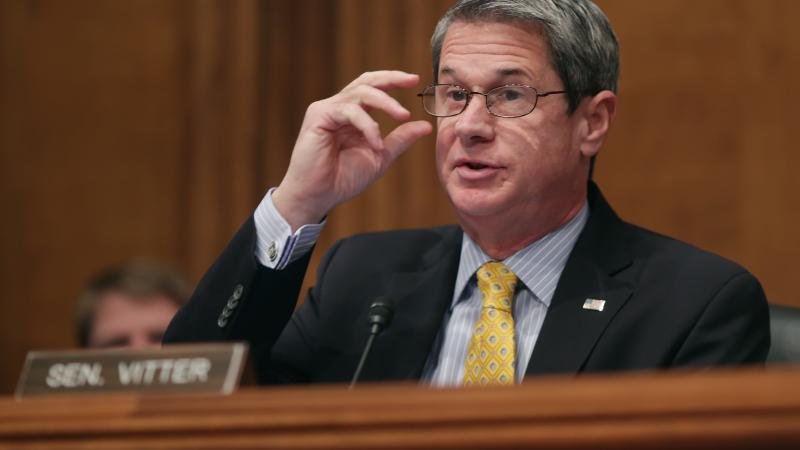Fauci backpedals on COVID immunity theory he previously touted
Fauci downplayed T cell theory, although a study partly funded by his own NIAID found that "variegated T cell memory to coronaviruses that cause the common cold may underlie at least some of the extensive heterogeneity observed in COVID-19 disease."
In a testy exchange with Kentucky Republican Sen. Rand Paul at a Senate hearing last week, Dr. Anthony Fauci distanced himself from his earlier support of an encouraging COVID-19 immunity theory.
Fauci, who has headed the National Institute of Allergy and Infectious Diseases (NIAID) since 1984 and has played a pivotal role in the federal response to the coronavirus, was appearing before the Senate Health, Education, Labor, and Pensions Committee.
At the hearing Wednesday, Fauci at one point got into an argument with Paul, who argued in part that New York City had developed a degree of herd immunity sufficient to prevent another explosion of COVID-19 cases there.
"In New York, it's about [a] 22% [infection rate]," Fauci replied to Paul. "If you believe 22% is herd immunity, I believe you're alone in that."
"There's also the preexisting immunity of those who have cross-reactivity," Paul countered, "which is about a third of the public in many estimates ... which would actually get you to about two-thirds."
"I'd like to talk to you about that also," Fauci parried, "because there was a study that recently came out that preexisting immunity to coronaviruses that are common cold do not cross-react with the COVID-19."
Fauci and Paul were referring to a burgeoning theory of widespread preexisting COVID-19 immunity. The theory holds that significant numbers of the population are more or less immune or largely resistant to SARS-Cov-2 due to the presence of certain "T cells," a critical component of a body's immune response.
Some scientists have claimed that possibly a majority of the population has "some degree" of immunity to COVID-19 due to T cells developed from earlier, milder coronaviruses.
Testifying on July 31 before a House coronavirus response committee, Fauci stressed the importance of pursuing that research.
T cells, he told the committee, "have the capability of essentially suppressing or killing cells that are infected and preventing the cells that are infected from making new viruses."
Fauci said that early evidence indicates that "maybe there's some memory from other coronaviruses that are benign, cold viruses" that can help people avoid getting seriously ill from COVID-19.
"This is work that we really need to pursue," he said. "We're just at the cusp of understanding the importance of this kind of response in COVID-19."
It is not clear what motivated Fauci's more pessimistic tone on Wednesday. Neither the NIAID nor contacts in Fauci's office returned requests for comment on the matter.
A NIAID spokesperson told NBC News that the study which Fauci referenced on Wednesday was published in the Journal of Infectious Diseases earlier this month. That study, in contrast to earlier findings, determined that past coronaviruses do not confer preexisting immunity to COVID-19.
COVID-19 has been baffling to scientists in no small part because of the broad range in the severity of symptoms experienced by those infected with it. Some become gravely ill and die quickly; others suffer severe symptoms for weeks on end; still others experience mild colds or no symptoms at all.
The CDC's current best estimate is that as many as 40% of those infected with COVID-19 remain asymptomatic. The T cell theory has emerged over the last few months as a promising, though still preliminary, explanation for why such a significant percentage of infections may be essentially harmless.
Research into the matter has continued steadily since the earlier days of the pandemic. A study published in the journal Science in early August, for instance, suggests that "variegated T cell memory to coronaviruses that cause the common cold may underlie at least some of the extensive heterogeneity observed in COVID-19 disease."
That study was funded in part by Fauci's own NIAID.
















